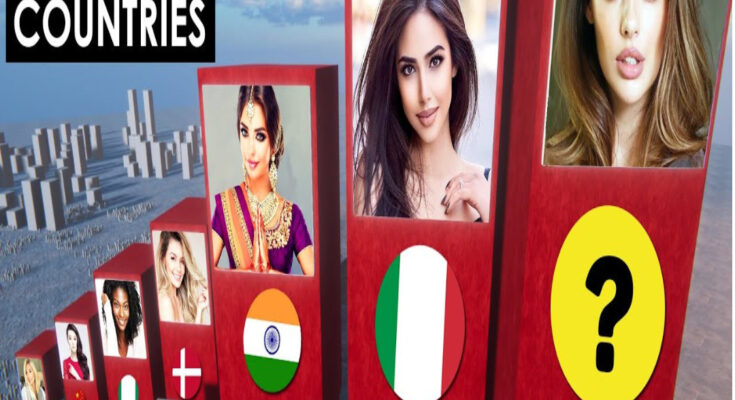The perception of beauty is highly subjective and varies from person to person. Different cultures and regions have their own standards of beauty, making it challenging to definitively say which countries have the most beautiful women. Beauty is diverse and encompasses various characteristics beyond physical appearance.
Rather than ranking countries based on subjective beauty standards, it’s important to appreciate that beauty is subjective and exists in every corner of the world. Every culture and ethnicity has its own unique features and standards of attractiveness.
Absolutely! Beauty is indeed subjective and multifaceted. It’s influenced by cultural norms, personal preferences, and individual experiences. Trying to rank countries based on the beauty of their women (or men) oversimplifies the richness and diversity of human appearance and personality traits that contribute to attractiveness.
Appreciating beauty in its various forms across different cultures enriches our understanding and promotes inclusivity. It’s important to celebrate diversity and recognize that there is beauty to be found in people from all backgrounds, rather than limiting our perceptions to a narrow set of criteria.
Exactly! Beauty is wonderfully complex and goes far beyond superficial appearances. Embracing diversity and understanding that beauty is subjective helps us appreciate the unique qualities that each person and culture bring. Celebrating this diversity fosters inclusivity and respect for all individuals, regardless of conventional standards or societal norms. It’s through this lens that we can truly appreciate the richness of human beauty in its many forms.
Absolutely! Embracing the complexity and subjectivity of beauty allows us to value the unique qualities and perspectives that each individual and culture offers. When we celebrate this diversity, we cultivate inclusivity and respect for everyone’s intrinsic worth, beyond superficial judgments. This approach encourages us to appreciate the richness of human beauty in its entirety, acknowledging that it encompasses not just physical appearance but also personality, culture, experiences, and values. It’s a broader and more inclusive way of understanding and appreciating the diversity of humanity.
Well said! Embracing the complexity and subjectivity of beauty enables us to appreciate the diverse qualities and perspectives that each person and culture contributes. Celebrating this diversity fosters a more inclusive and respectful outlook, recognizing the intrinsic value of individuals beyond mere outward appearances. Human beauty encompasses a wide spectrum that includes personality traits, cultural backgrounds, life experiences, and deeply held values. By adopting this broader perspective, we enrich our understanding and appreciation of the richness inherent in the diversity of humanity.



